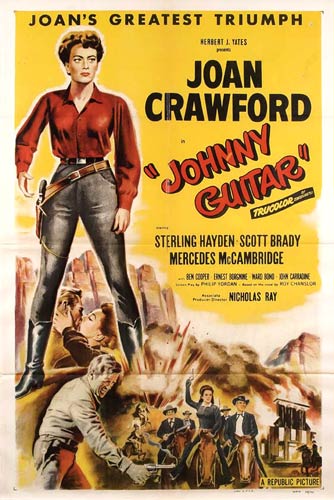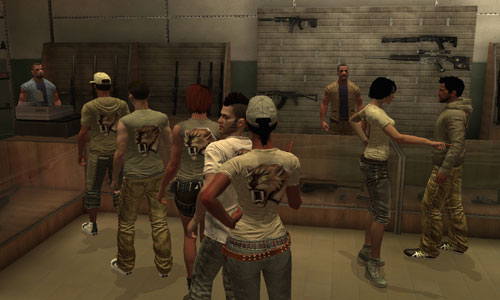 Video games tend to be frowned upon as second-class media, but the US Postal Service is taking that stance literally, according to a complaint by Gamefly, which rents video games through the mail.
Video games tend to be frowned upon as second-class media, but the US Postal Service is taking that stance literally, according to a complaint by Gamefly, which rents video games through the mail.
In a 17-page complaint filed with the Postal Regulatory Commission (via Ars Technica), GameFly says that 1 percent to 2 percent of its games are breaking in transit. Even more interesting is Gamefly’s allegation that the postal service gives “preferential treatment” to Netflix and Blockbuster.
Gamefly takes issue with the use of an automated sorting system that has a tendency to damage discs. While the postal service manually sorts out “a large percentage” of DVDs from Blockbuster and Netflix, it refuses to do the same for Gamefly under equal terms.
Adding insult to injury, the postal service boasted in a July 2008 press release that it was helping Gamefly prosper when the company opened a new shipping center. “GameFly may be a relatively new company, but it’s using an old idea— getting USPS to help it grow,” the statement said.
Gamefly filed the complaint on four counts, among them “Unlawful Discrimination Among DVD Mailers” and “Unlawful Discrimination Among Flats Mailers.” The company says it wants the same terms and prices that Netflix and Blockbuster are getting and may seek “additional forms of relief as the evidentiary record justifies.”
With 590,000 discs going out per month, Gamefly is shelling out almost $300,000 per month to replace broken discs if you assume a cost of $50 per game. That hurts enough on its own, but as Gamefly points out, Blockbuster is getting into mail-order game rentals now, allegedly without the same shipping headaches.
This explains why I’ve received a few different varieties of mailers during my two years of membership with Gamefly. I used to get cardboard inserts in the mail, but that practice was abandoned last year at one point abandoned, and has since continued again. Apparently, it was too expensive because of the weight increase, and it didn’t the extra cost still doesn’t stop all the discs from breaking.

 Netflix it’s not, but a new mail-order rental service from Chicago-based Facets Multimedia has something for the super-dedicated indie niche.
Netflix it’s not, but a new mail-order rental service from Chicago-based Facets Multimedia has something for the super-dedicated indie niche.
 Traditionally, Massive Multiplayer Online games are not the avenue for testing one’s reflexes.
Traditionally, Massive Multiplayer Online games are not the avenue for testing one’s reflexes. Ask Sony for some thoughts on the state of the PSP, and it seems you’ll get a profoundly different answer than that of third-party interests.
Ask Sony for some thoughts on the state of the PSP, and it seems you’ll get a profoundly different answer than that of third-party interests. They go by different names, but sometimes it’s the same hardware failure that causes the Xbox 360’s “Red Ring of Death” and the newer “E74.”
They go by different names, but sometimes it’s the same hardware failure that causes the Xbox 360’s “Red Ring of Death” and the newer “E74.” John Madden may have stunned the sports world today by announcing his retirement from broadcasting, but football video game fans shouldn’t be surprised that the Madden game franchise is staying put.
John Madden may have stunned the sports world today by announcing his retirement from broadcasting, but football video game fans shouldn’t be surprised that the Madden game franchise is staying put. If you thought the recording industry would suffer for pushing higher prices on iTunes and other download services, you’d be wrong.
If you thought the recording industry would suffer for pushing higher prices on iTunes and other download services, you’d be wrong. The games industry has a reputation for being risk-averse, often tacking on numerals to existing franchises or spewing out endless iterations of solitaire and poker. While that strategy flies in the console and computer gaming world, one game company exec claims the landscape is different on the iPhone. I’m skeptical.
The games industry has a reputation for being risk-averse, often tacking on numerals to existing franchises or spewing out endless iterations of solitaire and poker. While that strategy flies in the console and computer gaming world, one game company exec claims the landscape is different on the iPhone. I’m skeptical. At the rate online video is growing, I imagine there will be a lot of people wanting to watch the Olympics online come 2010. If that’s the case, they’d better not abandon their TV subscriptions.
At the rate online video is growing, I imagine there will be a lot of people wanting to watch the Olympics online come 2010. If that’s the case, they’d better not abandon their TV subscriptions.